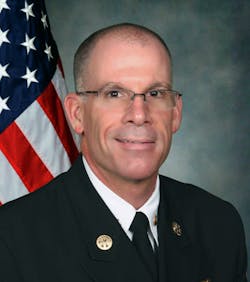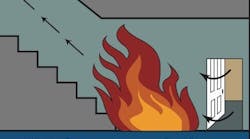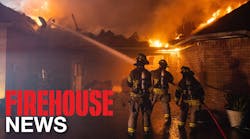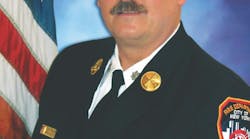The phrase “All politics is local” is one most of us have heard or referenced in conversations and debates about national elections and politics. This phrase has been attributed to former Speaker of the House of Representatives Tip O’Neill, who used it to describe the actions of voters who often support or reject an issue on a national basis and tend to vote in ways that impact them locally. Like most, I have long agreed with this phrase and its applicability. But after watching the movie “Last Flag Flying,” this phrase and the role of politics in the fire service began to take on a new and a more personal meaning.
“Last Flag Flying” is a movie about three Vietnam veterans who reunite in 2003 and embark on a journey to bury former Navy Hospital Corpsman Larry “Doc” Shepherd’s son, who was killed in action while serving as a Marine in Iraq. Shepherd, who adamantly opposed the military and the U.S. government after being dishonorably discharged, did not want his son to be buried in Arlington cemetery, but rather in their hometown in suburban New Hampshire.
On their journey to Dover to pick up Shepherd’s son’s body, the three veterans decided to visit the elderly mother of one of their fellow soldiers who had died after Shepherd wrongfully allowed his colleagues to use the last available morphine for their own recreational use. The three men met with their fallen colleague’s mother with the intent of telling her the truth about his death, but decided against it once they had heard the heroic story she had been told, and lived with, for the last 30 years.
After an event-filled journey to Dover Air Force base, Shepherd and his two colleagues met with representatives of the Marine Corps who were charged with overseeing the movements of the deceased soldier’s body. While meeting with the commanding officer and a close friend of his son (also a Marine), Shepherd learned for the first time that the story he’d been told, which included a fierce gun battle and heroic actions by his son, had been fabricated to ease the pain Shepherd and his family would undoubtedly feel upon learning of the loss of their loved one. In actuality, an Iraqi assailant shot and fatally wounded Shepherd’s son while he was shopping for snacks at a gas station far removed from the field of battle.
While these events are fictional, the unique and personal role of politics in these interactions is very real. In the fire service, we often express angst and frustration at the mere mention of politics, but we must remember that politics is so much more than elections and party affiliations. Politics plays a role in virtually everything we do as firefighters and fire officers, and our actions and decisions (conscious or otherwise) may not always be focused on the big picture, but rather at local or personal level.
Over the course of our career, we have likely all questioned a decision or action of a supervisor, a chief officer or city administrator. In some cases, his or her response to a challenge or inquiry about this may simply be, “it’s politics” or “it’s political.” What’s important to understand is that the decision or action may be based on reasoning that is far deeper and more complex than what we can understand at the time, without being privy to all the information.
The story that was told to the mother of the fallen soldier and the story that was told to Shepherd about his son’s death were not told to deceive but rather to relieve the stress and suffering of the survivors—politics. Were these stories accurate? No. Were the stories told to serve the better good? Yes—politics.
To be clear, we are ALL affected by politics. It’s a part of our cities, departments and individual interactions—the smallest form of “local.” How we act, the decisions we make, and the positions we take on critical issues are all affected by politics. As firefighters, fire officers and leaders, we work in a political system (traditional and non-traditional) that has a mission to selflessly serve the citizens of our communities. We should not despise the political system, nor fear it. We simply must step back to see the bigger picture of how our political realities impact our local realities, and remember that there’s sometimes more to the story of the last flag flying.






